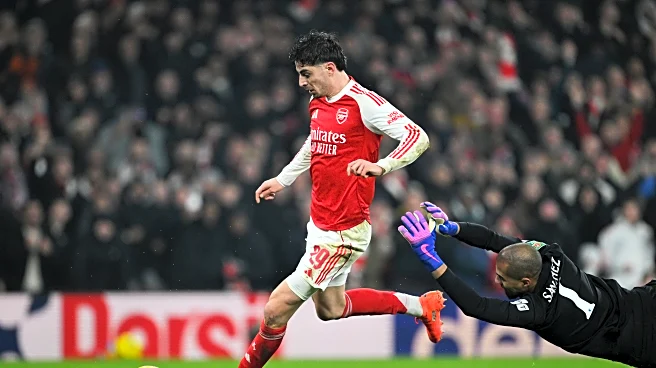Rapid Read • 7 min read
The Chicago Bulls are leaning into nostalgia from their Michael Jordan era as they prepare for the 2025-26 NBA season. Despite recent struggles and a lack of championship contention, the Bulls are bringing back their iconic black-and-red pinstripe jerseys from the 1995-96 season, when they achieved a 72-10 record and won the championship. The jerseys, now called 'Statement Jerseys,' are part of an effort to remind fans of the team's past glory. The Bulls have made minimal roster changes, including trading Lonzo Ball and acquiring Isaac Okoro, as they face another challenging season.
AD
The Bulls' focus on nostalgia highlights the team's efforts to maintain fan engagement despite recent performance issues. By celebrating their successful past, the Bulls aim to strengthen their brand and fan loyalty. This strategy reflects broader trends in sports marketing, where teams leverage historical achievements to boost current support. The move also underscores the challenges faced by teams in rebuilding and achieving competitive success in the NBA. Fans and stakeholders are watching how the Bulls balance honoring their legacy with addressing current team dynamics.
The Bulls will continue to promote their historical achievements while navigating the upcoming season. The team's management may explore further roster adjustments to improve performance. Fan reactions to the nostalgia campaign will likely influence future marketing strategies. The Bulls' ability to capitalize on their past while addressing present challenges will be crucial in shaping their long-term success and reputation in the league.
The Bulls' nostalgia campaign raises questions about the role of historical legacy in sports branding and fan engagement. It highlights the cultural significance of iconic sports figures like Michael Jordan and their lasting impact on team identity. The strategy also reflects broader societal trends in valuing historical achievements and their influence on contemporary sports culture.
AD
More Stories You Might Enjoy













